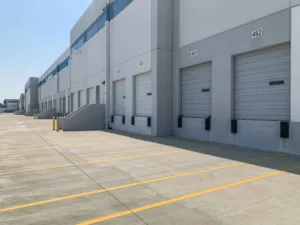When it comes to commercial real estate, the complexities of managing office buildings, retail spaces, and apartment complexes can be overwhelming. However, self storage facilities offer a refreshing contrast, providing a simpler and more cost-effective alternative. Here are some of the key benefits that make self storage facilities a standout choice in the realm of commercial real estate.
1. Minimal Staffing Requirements
One of the most significant advantages of self storage facilities is the minimal need for daily employees. Unlike office buildings or retail spaces that require a range of staff from receptionists to security personnel, self storage units can often be managed with a skeleton crew. Many facilities are automated, allowing customers to rent units, access their belongings, and make payments online. This automation reduces the need for a large on-site team, cutting down on labor costs significantly.
2. No Bathroom Facilities
Commercial buildings typically need to maintain multiple restrooms, which involves regular cleaning, stocking of supplies, and repairs. Self storage facilities, on the other hand, generally do not require public restrooms. This not only reduces maintenance costs but also simplifies daily operations, freeing up resources to focus on other aspects of the business.
3. No Tenants, No Problems
Dealing with tenants in office or residential buildings can be a full-time job. Tenant complaints, lease negotiations, and the constant upkeep of living or working spaces can drain time and resources. Self storage facilities eliminate these headaches. There are no tenants to manage, just customers who store their belongings and visit occasionally. This leads to fewer interpersonal issues and a more straightforward management process.
4. Low Trash and Waste Management
Commercial and residential properties often produce a significant amount of trash that needs regular disposal. Self storage units generate minimal waste since customers typically handle their own garbage. This reduces the need for large waste management contracts and frequent trash pickups, lowering overall operational costs.
5. Self-Managed Units
Self storage customers are responsible for managing their own units. This self-management means there is little need for janitorial staff to clean or maintain the units regularly. While common areas might require occasional cleaning, the burden of upkeep primarily falls on the users. This reduces the need for a large maintenance team and allows for more efficient allocation of resources.
6. Lower Power and Operational Costs
Self storage facilities generally have lower power requirements compared to other commercial properties. There is no need to heat, cool, or light individual units continuously. Many facilities use motion-activated lighting in common areas to further reduce energy consumption. Additionally, operational costs such as water and sewage are minimal since there are no restrooms or large-scale water needs.
Conclusion
The simplicity and cost-effectiveness of maintaining self storage facilities make them an attractive option for investors and property managers. With minimal staffing needs, no bathroom facilities, fewer tenant issues, low waste generation, self-managed units, and lower power costs, self storage facilities provide a streamlined and efficient approach to commercial real estate management. For those looking to invest in commercial real estate without the usual headaches, self storage offers a compelling alternative.





